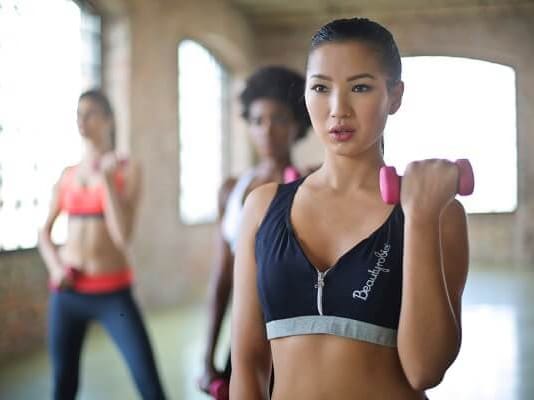Love Your Body: Escape From Unrealistic Ideals
How do you feel about your body? If truth be told, most of us suffer from insecurities about the way we look and the shape of our bodies. Why is this? Well, if we never saw another human, we’d feel totally fine. The issue comes from unrealistic beauty and body standards. Particularly influencers on social media. More than half of the world’s population, over 4.5 Billion people, use social media and are regularly exposed to beauty and body ideals or are sharing their version of them.
What body ideals?
Full chests, thin waists, blemish free skin, full lips, flat tummies, chiselled jaws, muscular arms, and so on. These standards are not new, but they are more pervasive than ever before. In the time before social media, we were exposed to models on posters and in film and TV. Often, they were impossibly thin and conventionally attractive, but we knew they were models. And so, they were separate from our reality, our daily life.
The model next door
Now, with social media and the help of clever angles and filters people can portray unattainable standards every day. People just like us—at the beach or at a coffee shop. What we don’t see, also like us, is them having just woken up—without hours of make-up and photo prep. This artificial staging of lifestyle photography has seeped in, to the point where we don’t know what’s real and what’s fake. It’s a social mimicry of film stars and celebrities, who have professional make-up artists and digital designers to tweak their snaps.
The reality is that, yes even celebrities, look very different without make-up, filters and photoshop—as this article shows. In fact, most of them look like…well, normal. Or certainly not up on beauty pedestals where we place them. Which begs the question, is beauty a construct?
Why is beauty damaging?
As aforementioned, society has long prescribed a certain kind of beauty. When we’re bombarded every day with images of physical attraction that are not the norm, and often manufactured, it starts to erode our self-confidence.
Women especially, have always had an intense pressure forced upon them related to beauty ideals. A pressure to look a certain way. And this doesn’t include having stretch marks, cellulite, blemishes, or any other minor “imperfections”. Despite the fact such things are not imperfections at all, but a healthy, and common part of life. Which, no surprises, can be covered up with clever photography.
When women, or men, are almost exclusively exposed to what they see as unattainable bodies it warps their own body image. Essentially creating a negative version of themselves.
This in turns leads to depression, rock bottom self-esteem, and dangerous eating disorders. Obviously, this isn’t good. Which is why, in the last decade, the body positivity movement has really taken off.
What is body positivity?
Though body positivity can mean different things to different people, at its heart it’s about self-acceptance and redefining perceptions of beauty. It’s about conveying realities rather than fantasies, and in media, showing bodies we can relate to. If we were to accept the vision of traditional advertising and historic social media trends, we’d think there was little diversity in the human body. On the contrary, we come in all shapes and sizes. This is to be celebrated, not shunned.
The thing is, it’s hard to see ourselves the way others do, and we’re prone to being our own worst enemies. Body positivity helps us see how critical we can be, and that the standards we’ve been set don’t translate into what we think and feel in real life.
However, cynics might say that body positivity, when taken to the extreme, promotes unhealthy lifestyle choices—as though traditional markers of body attractiveness are founded on peak health. For example, being overweight can be unhealthy, and isn’t something to be encouraged. Yet, being underweight is also unhealthy, and this has been encouraged religiously. Hence models suffering from anorexia.
The real answer to what body positivity is, lies with the individual, and not any one body representation. It’s understanding that media and our bodies are quite often at odds, but this doesn’t mean we should feel bad about ourselves, nor worry if we’re not meeting a magical societal benchmark. The only thing that matters is that we feel good in ourselves and make choices in our own best interests.
Gain body positivity at the Glass House with our Love My Body Package.




